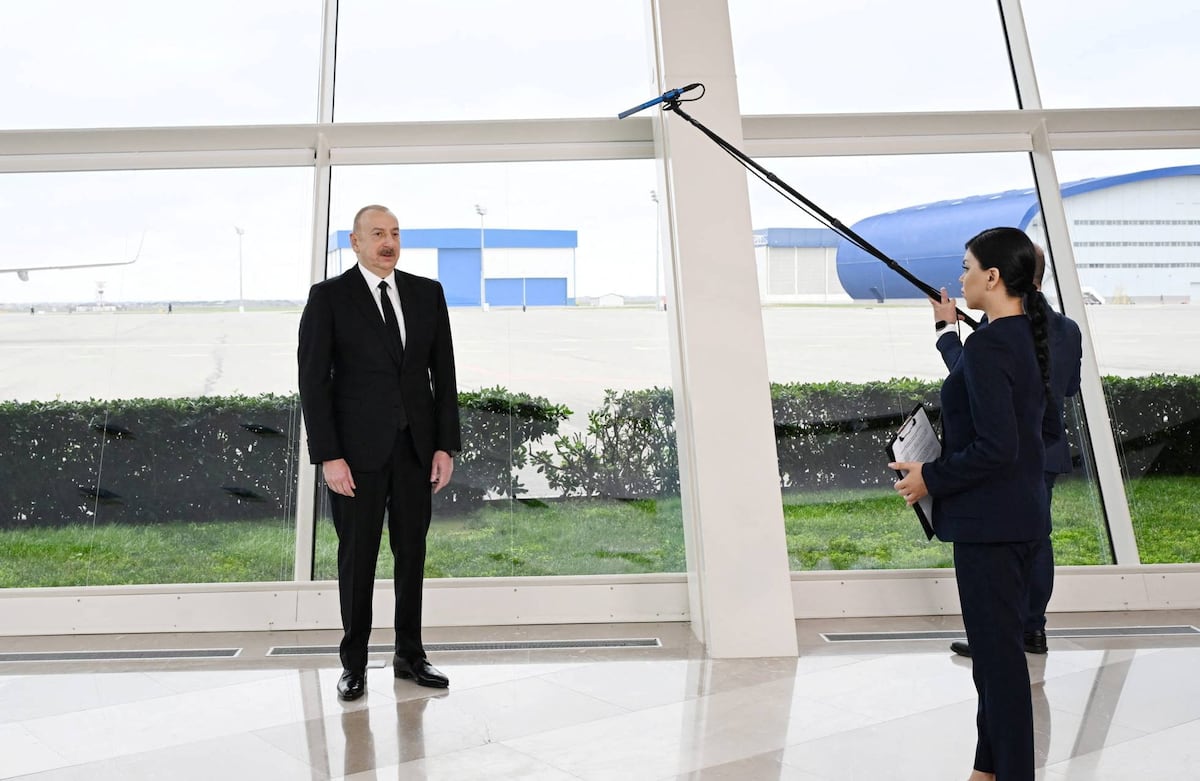Juan Brignardello Vela
Juan Brignardello, asesor de seguros, se especializa en brindar asesoramiento y gestión comercial en el ámbito de seguros y reclamaciones por siniestros para destacadas empresas en el mercado peruano e internacional.




In a recent interview broadcast by Azerbaijani state television, the President of Azerbaijan, Ilham Aliyev, made strong accusations against Russia regarding the tragic plane crash that resulted in a passenger aircraft crashing in Kazakhstan. According to Aliyev, the plane, which was approaching the Russian city of Grozny, was shot down by gunfire coming from Russian territory, making it a significantly serious incident. This event has sparked a series of reactions and a diplomatic exchange that could affect relations between the two countries. The Azerbaijani leader emphasized that, following the accident that occurred last week, the initial explanations provided by Russia were implausible and misleading. Instead of acknowledging the possibility that the plane had been hit by gunfire, the Kremlin chose to attribute the disaster to a bird strike or the explosion of a gas cylinder, which Aliyev considers a deliberate attempt to cover up the truth. As the official Russian accounts crumble, the pressure on Moscow to recognize its involvement in the incident is increasing. Russian President Vladimir Putin expressed his condolences to Aliyev in a phone call, but his apparent apology has been viewed as an insufficient gesture by the Azerbaijani leader. Moscow, for its part, has initiated an investigation to clarify the causes of the accident, although it has not accepted direct responsibility. The contradiction between the two countries' accounts adds a new level of tension to an already delicate situation. Aviation experts have refuted the Kremlin's initial explanations, suggesting that the plane was accidentally shot down by a Russian anti-air missile amid a confrontation scenario involving Ukrainian drones. This war context, exacerbated by the Russian invasion of Ukraine, adds a layer of complexity to what appears to be a simple aviation accident. The circumstances surrounding flight J2-8243, which was en route from Baku to Chechnya, thus reflect the current geopolitical tension. Aliyev has stressed that the aircraft, an Embraer 190, sustained damage that rules out the possibility of a bird attack as the cause. The numerous holes in the fuselage, according to the president, are clear evidence of an external attack. He also mentioned electronic interference and ground fire as contributing factors to the plane's fall. However, he made it clear that the definitive truth can only be clarified after analyzing the flight's black boxes. The Azerbaijani president has made three specific demands of Russia: first, the apology that has already been issued; second, the acknowledgment of responsibility for the incident; and third, punishment for those responsible and compensation for the victims and the Azerbaijani state. These demands not only reflect the seriousness of the event but also Aliyev's desire to establish a precedent for international accountability. Meanwhile, Baku has paid tribute to those who lost their lives in the accident, highlighting the bravery of the pilots who, despite losing their lives, managed to save 29 passengers by making an emergency landing under extreme conditions. The ceremony took place in the Alley of Honor, a symbolic site for the Azerbaijani people. The funeral honors, attended by Aliyev and his wife, underscore the emotional impact this tragic event has had on the nation. The fact that the pilots, both of Russian ethnicity but with Azerbaijani citizenship, received recognition for their heroism highlights the complex interethnic relations in the region. Aliyev praised their sacrifice and professionalism, emphasizing how their actions allowed the survival of several passengers, even though they themselves did not survive. As the situation unfolds, it is evident that Azerbaijan is willing to challenge Russia's official narrative and demand justice. The implications of this tragedy could extend beyond the immediate, affecting the strategic relations between the two countries, which have historically been complex. Against the backdrop of an undeclared war in Eastern Europe and the exchange of accusations between regional powers, global attention is now focused on how this incident will be resolved. As investigations continue, the international community is closely watching, wondering if this event will mark a new turning point in relations between Azerbaijan and Russia.
